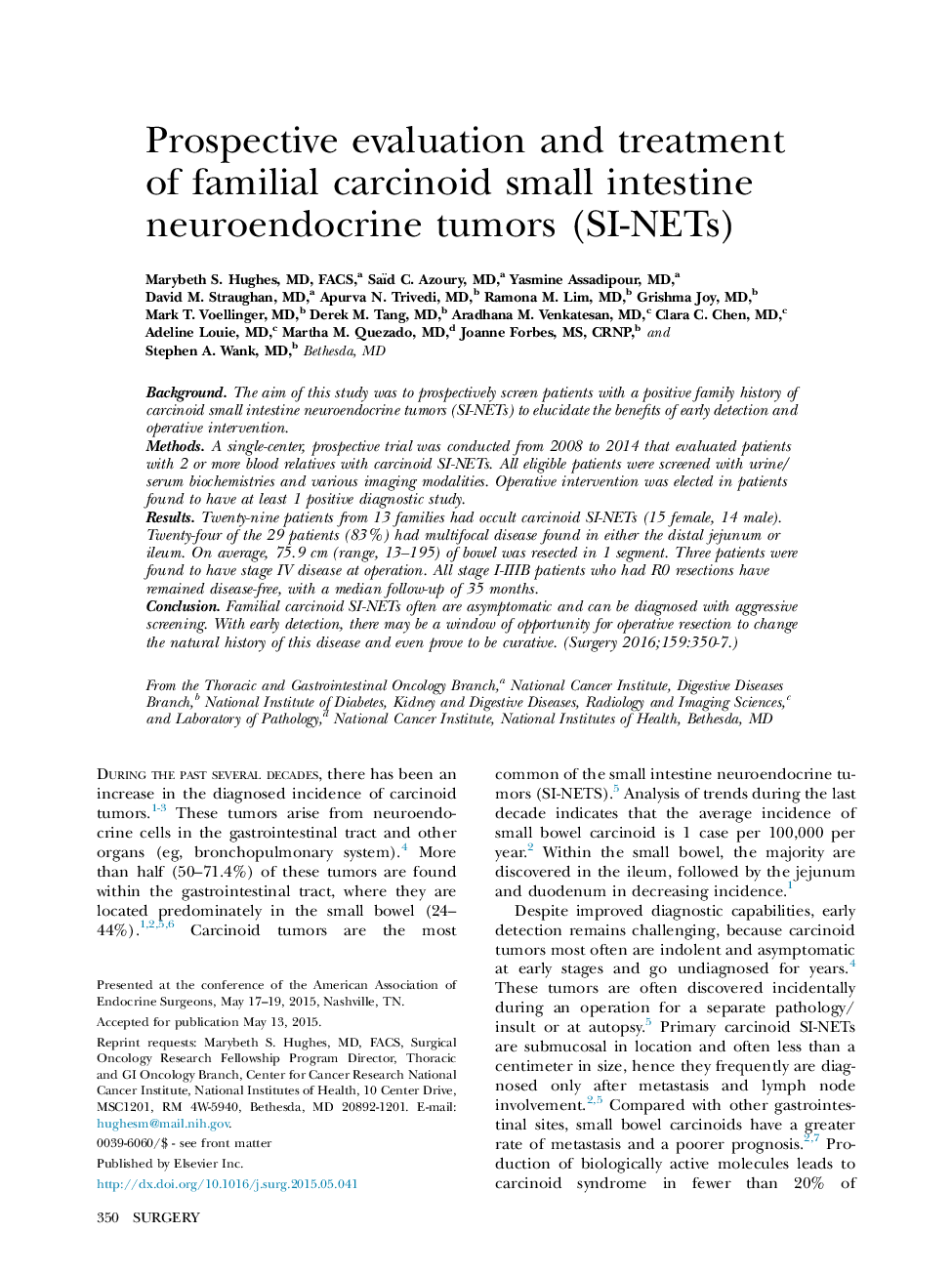| Article ID | Journal | Published Year | Pages | File Type |
|---|---|---|---|---|
| 4306673 | Surgery | 2016 | 8 Pages |
BackgroundThe aim of this study was to prospectively screen patients with a positive family history of carcinoid small intestine neuroendocrine tumors (SI-NETs) to elucidate the benefits of early detection and operative intervention.MethodsA single-center, prospective trial was conducted from 2008 to 2014 that evaluated patients with 2 or more blood relatives with carcinoid SI-NETs. All eligible patients were screened with urine/serum biochemistries and various imaging modalities. Operative intervention was elected in patients found to have at least 1 positive diagnostic study.ResultsTwenty-nine patients from 13 families had occult carcinoid SI-NETs (15 female, 14 male). Twenty-four of the 29 patients (83%) had multifocal disease found in either the distal jejunum or ileum. On average, 75.9 cm (range, 13–195) of bowel was resected in 1 segment. Three patients were found to have stage IV disease at operation. All stage I-IIIB patients who had R0 resections have remained disease-free, with a median follow-up of 35 months.ConclusionFamilial carcinoid SI-NETs often are asymptomatic and can be diagnosed with aggressive screening. With early detection, there may be a window of opportunity for operative resection to change the natural history of this disease and even prove to be curative.
